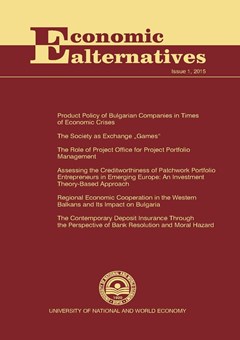Regional Economic Cooperation in the Western Balkans and Its Impact on Bulgaria
Author: Monika Moraliyska
Abstract
The research topic of the present paper is the regional economic cooperation of the six Western Balkan countries (Albania, Bosnia and Herzegovina, Kosovo, Macedonia, Montenegro and Serbia), called here "SEE-6 countries". The study aims to determine the achieved level of regional economic cooperation between them, on one hand, and their level of economic integration with the European Union, on the other. On this basis conclusions are made about the SEE-6 countries’ current trade conditions, economic relations within CEFTA and between CEFTA and the EU, as well as about their long-term economic orientation. The trade relations between SEE-6 countries and Bulgaria are analyzed in the last part, with comments on the past experience of their mutual trade and future perspectives. To fulfill these tasks, the theory of regional economic integration is considered. Statistics is used about the trade between CEFTA and the EU, within CEFTA and between SEE-6 countries and Bulgaria, as well as the agreements on which this trade is based. The empirical study includes the indices of trade openness and regional trade concentration, outputs and trends in the current state of trade and conclusions about the Western Balkans’ and Bulgaria’s exports opportunities. As a result of this analysis, conclusions about the regional economic cooperation of the SEE-6 countries are formulated, including about its impact on Bulgaria.

